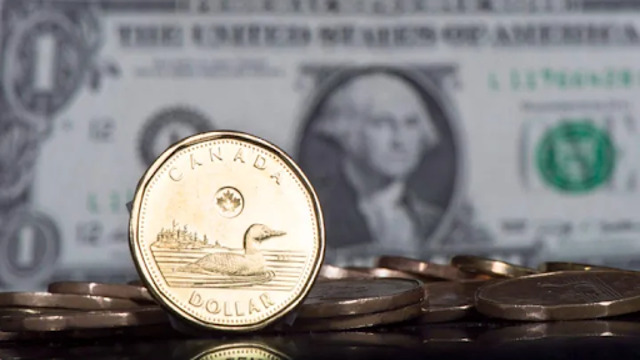
Economists are raising concerns about challenging times ahead for the Canadian dollar as we move into the new year. Aaron McArthur provides the details.
Economists are sounding alarms over the Canadian dollar’s struggles as 2025 approaches, predicting tough times ahead. For weeks, the loonie has hovered below the US$0.70 mark, and experts believe it could dip even lower.
Robert Levy, an analyst with Border Gold, points to interest rate disparities as a significant factor behind the currency's weakness. “Investors can earn over a percentage point more by putting their money in the U.S. instead of Canada,” he explained. This disparity makes the U.S. a more attractive option for investors, directly impacting the loonie. Levy also highlighted the uncertainty surrounding incoming U.S. President Donald Trump’s policies, particularly on trade, which creates an additional cloud over Canada’s economic outlook.
The Bank of Canada has been trying to encourage investment through lower interest rates. However, this approach might take years to stabilize the situation, further influencing the loonie’s performance. While a weaker Canadian dollar can boost exports, the looming possibility of Trump imposing a 25% tariff on Canadian goods keeps uncertainty high. “Businesses often offset such risks through a weaker exchange rate,” Levy added, suggesting the loonie may face more downward pressure in the near term.
Karl Schamotta, chief market strategist with Corpay, likened the situation to a “perfect storm” hitting the Canadian dollar. He attributes this to several factors: stagnant oil prices over the past decade, a thriving U.S. economy strengthening the American dollar, and Canada’s internal challenges, such as low productivity, overreliance on real estate, and high household debt.
For Canadian consumers, the weakened currency means higher costs for U.S. imports and goods produced south of the border. However, Schamotta expressed cautious optimism, predicting that the loonie might begin to recover after Trump’s inauguration in 2025.
One key issue weighing on Canada’s economy is its housing sector, which has been driving much of the economic downturn in recent years. Rising interest rates have increased borrowing costs for Canadian households, leaving less disposable income for other expenditures. The Bank of Canada’s recent rate cuts have provided some relief, which could grow further in the coming year.
Despite these challenges, economists believe the road to recovery will depend on how Canada navigates its economic vulnerabilities and the shifting global landscape. For now, the Canadian dollar faces significant hurdles that will demand resilience and strategic policymaking.















